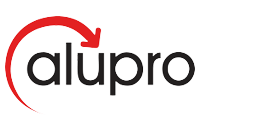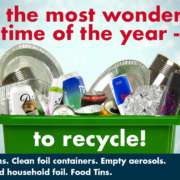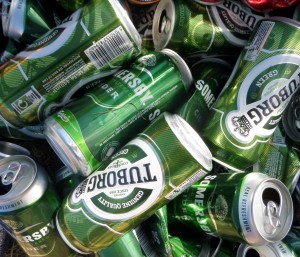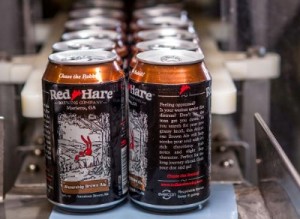The Aluminium Packaging Recycling Organisation (Alupro), recognising the impact of the changing nature of recycling collection systems, has undertaken a detailed review of the amount of aluminium packaging present in the mixed aluminium scrap grade known as “Old Rolled”. The study concluded that there are minimal volumes of aluminium packaging present in mixed aluminium scrap and Alupro therefore welcomes the Environment Agency’s (EA) decision to withdraw the “old rolled protocol” and three* other aluminium scrap protocols from the PRN system, commencing 1 January 2015.
Alupro, which represents the UK’s leading aluminium packaging producers and reprocessors, recognises that since the protocols were first introduced nearly 20 years ago, collection systems have changed significantly. With widespread introduction of kerbside collection schemes, the once robust protocols are no longer relevant. With far more high quality aluminium packaging material recovered kerbside, and less appearing in general scrap, Alupro agrees that it is now appropriate to withdraw the protocols.
The sampling project was funded by Alupro, whose members consider the integrity of data on aluminium packaging collected for recycling to be of paramount importance. The proactive approach taken by Alupro will ensure that data accounting for the recovery of aluminium packaging material is accurate and truly reflects the efforts and activities the organisation and its members undertake to recover this valuable resource.
The new Incinerator Bottom Ash (IBA) protocol, recently acknowledged by the EA (read more) further highlights how the UK’s collection systems have evolved over the last 20 years, ensuring that aluminium packaging material recovered this way, and previously unaccounted for, will now rightly be reported as part the aluminium packaging recycling performance.
Speaking about the removal of protocols, Rick Hindley, Executive Director, Alupro, said: “Accuracy of data reporting is essential if the UK is to meet its recycling obligations and targets, so the revision of the aluminium packaging protocols will ensure that measurement of our sector’s performance is robust and reflects the current collection infrastructure. To maintain confidence in the data we have agreed with the EA that the new incinerator bottom ash protocol will be reviewed every three years. This protocol revision and review process is something we feel other materials should undertake so that the recycling sector can be confident in the accuracy of its data.”
Alupro has long called for greater accuracy in the PRN reporting system and the need for all materials to be treated equally if recycling obligations and targets are to be met – and this is why the organisation has taken steps to ensure its own figures are robust.
Rick added: “It is hoped that the work undertaken by Alupro to verify the flows of recycled aluminium packaging and the subsequent withdrawal and adoption of various protocols, will mean the reported recycling data for aluminium packaging will be the most accurate for any material.”
-Ends-
* The three other protocols are:
• Mixed Aluminium Alloy Cuttings
• New Pure Aluminium
• New Scrap of One Aluminium Alloy





 Novelis
Novelis
 A study undertaken by IFEU (The Institute for Energy and Environmental Research) to measure the relative environmental performance of two different sandwich packs – aluminium household foil and a rigid plastic lunchbox – found that aluminium foil performs very favourably in terms of environmental impact and should be considered a sustainable and convenient alternative product for packed lunches.
A study undertaken by IFEU (The Institute for Energy and Environmental Research) to measure the relative environmental performance of two different sandwich packs – aluminium household foil and a rigid plastic lunchbox – found that aluminium foil performs very favourably in terms of environmental impact and should be considered a sustainable and convenient alternative product for packed lunches. 



